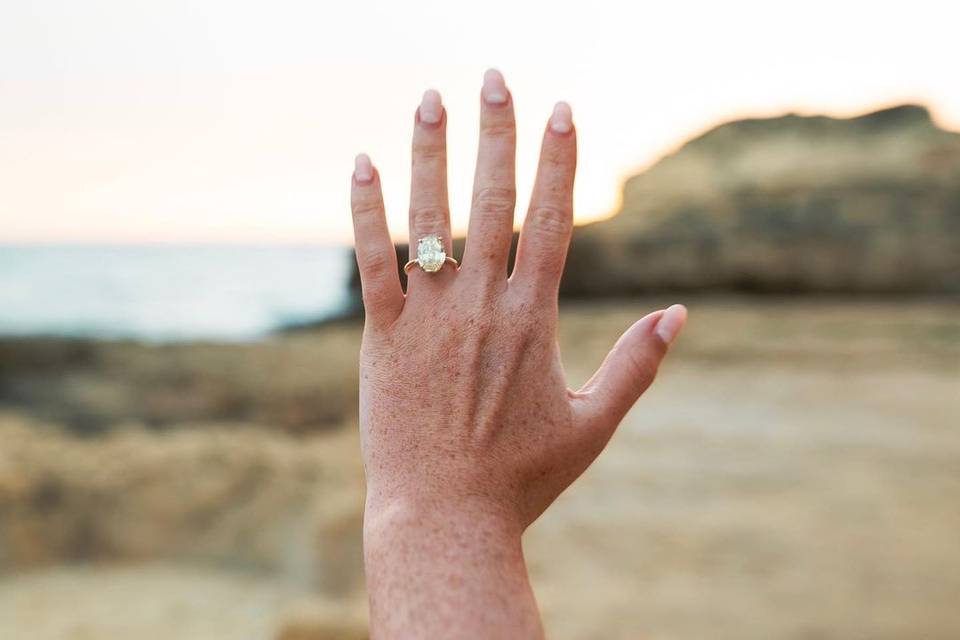Is it Time for a Sleep Divorce?
Hitched Love Guru and relationship expert Anna Williamson explores what a 'sleep divorce' is - and what it could mean for your relationship...


Do you enjoy sleeping with your partner? Now, I’m not talking about the sexy-time variety here, I’m referring to literally the sleeping part. You, your other half, in one bed night after night.
For many couples, sleeping together can be anything but cosy and comforting, in fact there are many reasons why you might be much better off deciding to make some positive changes around your sleeping arrangements. You might want to consider a sleep divorce.
READ MORE:
- The 25 Things All Couples in Long-Term Relationships Know
- What Are the Five Love Languages?
- What Are the Four Attachment Styles & What Do They Mean?
Sleep Divorces Are on the Rise

A lot of couples feel uneasy about suggesting to sleep in separate beds; surely it spells doom for a relationship? Wrong!
In fact studies suggest that a) many more couples are doing it than we might think - 1 in 4 according to the National Sleep Foundation - and b) it can actually help a relationship in so many ways.
So why might you opt for a sleep divorce? Snoring, fidgeting, different working patterns, conflicting bedtimes (night owl or early riser), duvet hogging, different comfort preferences (hard mattress/soft mattress/hot room/cold room), hot body aversion…the list goes on!
Many of us have been there: you’ve got to be up for an important meeting the next day and instead of waking up feeling bright-eyed and bushy-tailed following a decent night’s kip, after an interrupted night you’re feeling tired, grumpy, and resenting your other half for being the culprit.
Contrary to the idea of sleeping in separate beds signalling a shortcut to the divorce courts, broaching the topic together of having your own beds, or even own rooms, can be a relationship saver!
It allows each person to sleep peacefully in their own time, and in the environment that suits their needs best. The key is that the decision is mutual and you both understand what the ‘rules’ around the new arrangement are to ensure your relationship not just survives, but thrives.
How to Make a Sleep Divorce Work for You

The main thing to consider is how you will keep the intimacy of the relationship strong in the absence of the ‘kiss goodnight and roll over’ approach that co-sleeping offers. Cosying up and being physical during your waking hours will be especially important to retain that closeness and intimacy with each other.
Go on date nights, make the effort to go for walks, steal kisses in the kitchen, cook dinner together, and chat. Talking about your relationship is super important to ensure you’re both checking in with each other, how you’re both feeling, and learning about any needs that need to be met.
The biggest concern over a sleep divorce is sex! Let’s be honest though, being sleep deprived due to your partner snoring, nicking the duvet, waking you up too early etc. is only going to dampen your libido.
Nothing screams, ‘urgh not today thanks’ than being a knackered, eye-bag toting shell of your former self, so the benefits of getting a good night’s sleep (separately) are only going to improve your desire – and your energy levels.
With the day to day assumption (and irritation) of being in the same bed as one another removed, the effort to be up close and personal is stepped up, and you will intentionally look for opportunities to be intimate with each other – that honeymoon-esque excitement will be reignited.
Whether you want to consider a sleep divorce is a very personal decision and should be made mutually so you’re both in agreement and happy with the arrangement.
It’s not for everyone, and there are some definite advantages about sharing the same bed as your beau, but ultimately it comes down to you and partner to work out what makes you both feel happy and comfortable…and well-rested!
If you want more relationship and love life advice from Anna Williamson, make sure you read her guide to handling the post-wedding blues.








